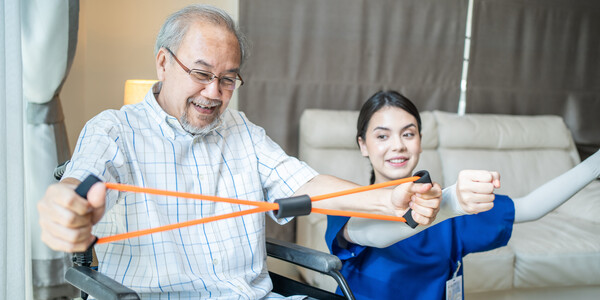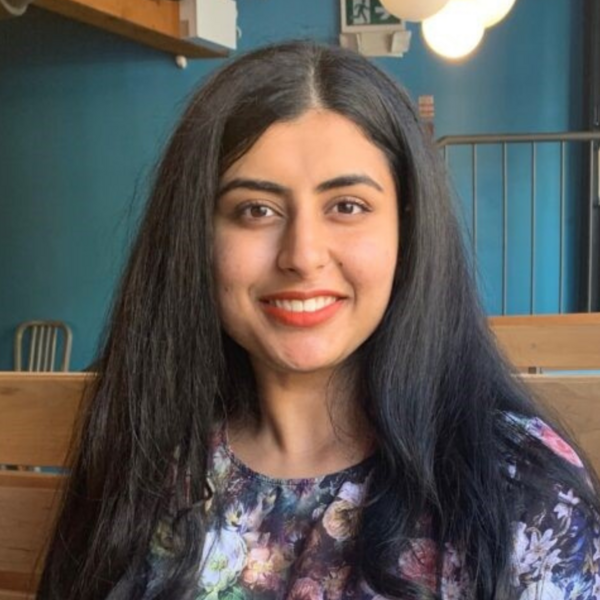
Main Second Level Navigation
Breadcrumbs
- Home
- Future Students
- Graduate Education
- Explore our Graduate Programs
- Rehabilitation Sciences
- Occupational Therapy
Occupational Therapy
MScOT
Our Program
The need for skilled occupational therapists has never been greater. Occupational therapists (OTs) are on the front lines of healthcare providing critical services. OTs are in high demand across a wide range of settings – traditional and emerging, hospital- and community-based. They are indispensable members of interprofessional/integrated healthcare teams for their role in enabling people to lead healthy, meaningful lives regardless of ability, illness or age.
The Master of Science in Occupational Therapy (MScOT), hosted by the Department of Occupational Science & Occupational Therapy, creates graduates with advanced academic and professional knowledge as well as applied research skills for leadership positions in occupational therapy practice. Our emphasis is on applying theory and research evidence to clinical practice through rigorous studies in occupational therapy and research production and utilization. Students in this program complete 18.5 FCE* over the duration of two years. The curriculum is a combination of courses and field work and students can choose to take the program at either the St. George downtown campus or at University of Toronto Mississauga.
As a graduate of the program, you will be eligible to write the certification examination of the Canadian Association of Occupational Therapists, a requirement for registration with the College of Occupational Therapists of Ontario and other professional regulatory colleges in Canada. You may also be eligible to practice occupational therapy elsewhere by passing the licensing requirements specific to that state or country.
Courses

- OCT 1100H (Applied Skills and Technology: Human Factors and Design in Occupational Therapy)
- OCT 1111Y (Occupational Science: Foundations for Occupational Therapy)
- OCT 1122Y (Research Foundations in Occupational Therapy)
- OCT 1131H (Occupational Therapy Practice I)
- OCT 1132H (Occupational Therapy Practice II)
- OCT 1141H (Assessment in Occupational Therapy)
- OCT 1152Y (Musculo-Skeletal Foundations for Occupational Therapy Practice)
- OCT 1162Y (Mental Health Foundations for Occupational Therapy Practice)
- OCT 1172Y (Neurological Foundations for Occupational Therapy Practice)
- OCT 1183Y (Occupational Therapy Fieldwork I)
- OCT 1190Y (Mentorship and Interprofessional Education)
- OCT 1193H (Enabling Occupation Across the Life Course)

- OCT 1220Y (Graduate Research Project)
- OCT 1233H (Occupational Therapy Practice III)
- OCT 1236H (Transition to Occupational Therapy Practice)
- OCT 1251H Enabling Occupation with Children: Part I
- OCT 1252H Enabling Occupation with Children: Part II
- OCT 1261H Enabling Occupation with Adults: Part I
- OCT 1262Y Enabling Occupation with Adults: Part II
- OCT 1271H Enabling Occupation with Older Adults: Part I
- OCT 1272H Enabling Occupation with Older Adults: Part II
- OCT 1281Y Occupational Therapy Fieldwork II
- OCT 1282Y Occupational Therapy Fieldwork III
- OCT 1284Y Occupational Therapy Fieldwork IV
Alumni Profile

Meera Premnazeer, MScOT
Based on my own experience, I would say three things are important. One, take part in extracurricular opportunities throughout the OT program. This includes applying to work-study positions or volunteering with professors to assist in their research. Having taken part in multiple work-study opportunities throughout the MScOT program, I found them to be a great opportunity to participate in research by the department’s faculty members. This research experience helped me to gain more clinical skills and evidence-based strategies. Volunteering is another great opportunity to make connections with faculty and current OTs in meaningful ways.
Two, make time for yourself, friends and family to enjoy your two years in the program as much as possible. After being in a pandemic while in this program, I see the value of self-care and making time for those whom you are close to more than ever. Having that in-person interaction and connection with others has helped me get through the past two years. Three, research your area of interest and try to plan for your third or fourth placement accordingly, as many OTs end up getting jobs through the connections they make while on placement.
By the Numbers
Department of Occupational Science & Occupational Therapy
*Full course equivalent. A typical 0.5 FCE is over one term (13 weeks), meeting 1-2 times per week. A typical 1.0 FCE is over two terms (26 weeks), meeting 1-2 times per week.